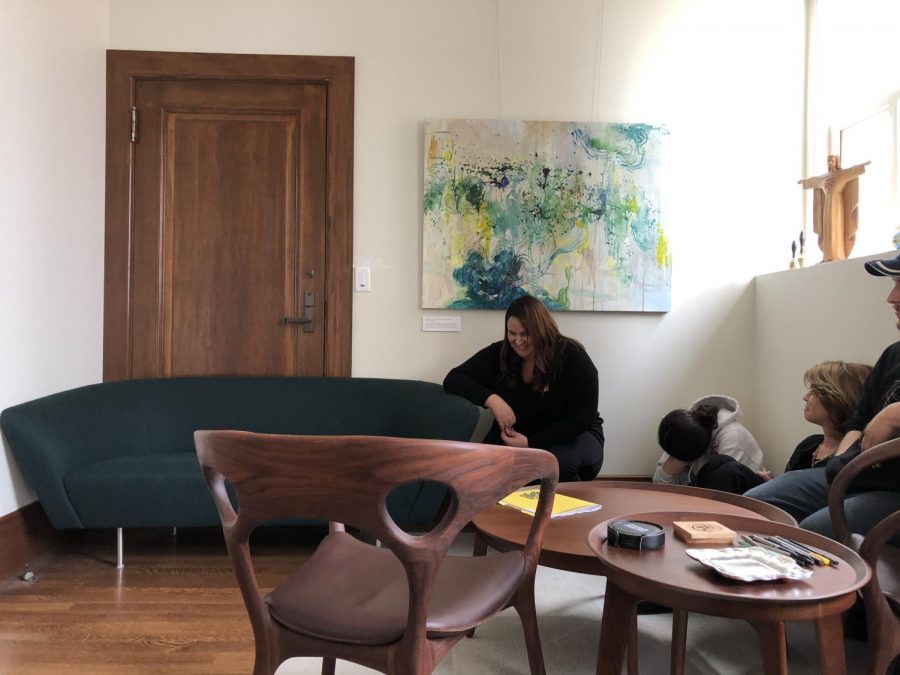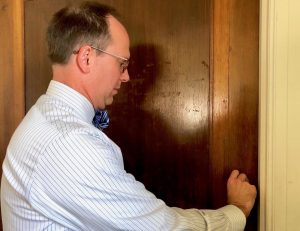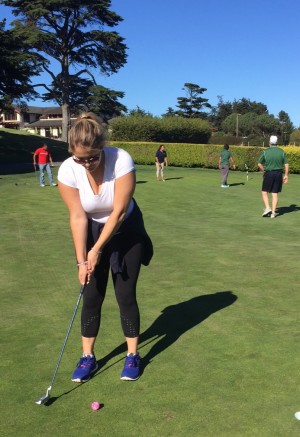Community participates in lockdown drill
Sophomore Colette Hom crouches in the corner of an office with members of the faculty during the lockdown drill. The couch was moved to block the door, and everyone crouched below windows so they would not be seen.
March 13, 2018
WEB EXCLUSIVE Convent & Stuart Hall performed a lockdown drill during the last period of the day as part of the second safety week of the year.
“When the alarm went off for the lockdown drill, the students in my class shut the blinds and moved away from the windows and our teacher locked the door,” sophomore Miley Sherman said. “It’s important that we practice drills like this so that our school can be more prepared and more efficient if the situation ever occurred.”
Students practiced a lockdown drill during the first semester, but due to the Stoneman Douglas High School Shooting, this lockdown drill felt more serious, according to freshmen Sarah El Qadah.
“The Florida school shooting had a huge impact on my behavior during the lockdown drill because I realized that sadly something like this could happen someday,” El Qadah said. “Safety week is important because it’s important to know what do when something bad happens. We should be as aware of these drills as possible.”
Having two safety weeks during the year allows the faculty to cover more drills and further educate their faculty and students, according to Plant Operations Director Geoff De Santis.
“Schools Safety Week in October is around The Great California Shakeout so we tend to put a little bit more focused on earthquake drills,” De Santis said “We always have a safety week during the spring semester as well where we kind of focus on lockdown drills and educating our faculty. We also have monthly fire drills, and all of these events prepare the school for emergencies.”
De Santis says safety week is not just about drills but also allows time for the faculty to practice and learn how to talk to and support students in potentially dangerous situations.
“I sent emails to the faculty with documents from our counselors about how to talk to students not only about drills but about if there was actually something bad that happened, which is something I’ve never done before this year,” De Santis said. “We need to make sure that those lines of communication are open for students to come in and say something or to speak their mind, and it’s important to educate the faculty on how to do that.”












